10 reasons to be thankful for your lab’s customers
It's easy to take clients for granted, but especially at this time of year, important to recognize how thankful you are for them.. Business, as they say, is business. And while those connections exist on a professional level, it is important to keep sight, especially at this time of year, of reasons to be thankful for those relationships.
Business, as they say, is business. And while those connections exist on a professional level, it is important to keep sight, especially at this time of year, of reasons to be thankful for those relationships.
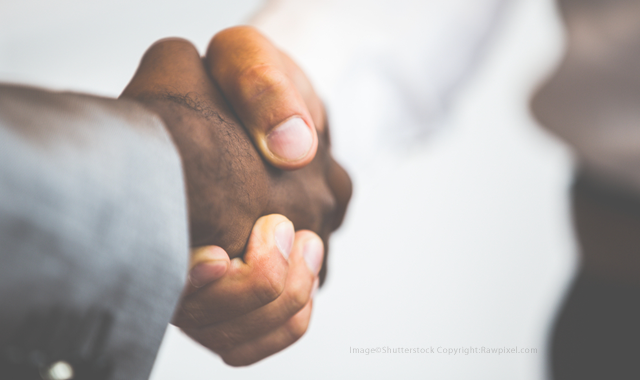
Certainly, those affiliations keep the lights on, but they also helpful lab grow and improve their craft. On the more personal level, lab owners likely even have a familiar relationship with their clients.
No matter what the reason, there are plenty of reasons to be thankful for the lab’s client doctors. With that in mind, we talked to members of our Editorial Advisory Board about reasons why they are thankful for their clients and customers.
Continue to the next page to see the top 10 reasons to be thankful for your clients.

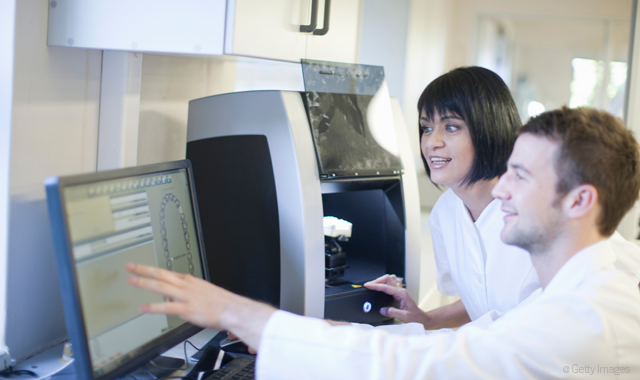
The human element
Labs may get numb to seeing restorations, but Mark Ferguson, General Manager, Vulcan Custom Dental, points out that those restorations are not just mass-produced widgets.
“I’m thankful for the clinicians that are willing to share with us,” he says. “A lot of times, we get so caught up in the lab that we miss out on the big picture that what we’re making is actually going into somebody’s mouth.
“It humanizes what you’re actually doing,” he continues. “It helps you with your craft, as a dental technician, to get a picture back of the case as it goes in the mouth to be able to get feedback about what worked and, maybe, what could have gone a little better on a particular case.”
That gratitude can extend to the patient, as well.
“It’s really nice when the patient says, ‘This is great,’” Ferguson observes. “‘This is my feedback, if you could share with the team.’ Sharing information is always going to help everybody do a much better job.”



Loyalty
Shaun Keating, President and CEO, Keating Dental Arts in Irvine, Calif. appreciates the doctors who have stuck with him for so long.
“I’m thankful for the loyalty of our key accounts that have been with us since I started,” Keating says. “We have about 1,000 doctors and about 100 of them probably give me about 80 percent of our work. It’s those hundred that have been with me since day one, and unless they retire, they are there with you. We’ve built a relationship and that’s just so important. With doctors, in the old days, you’ve built relationships, and now it seems like they’re going for coupons and things like that. With us, we’re just very thankful for the loyalty of the dental accounts that we have.”


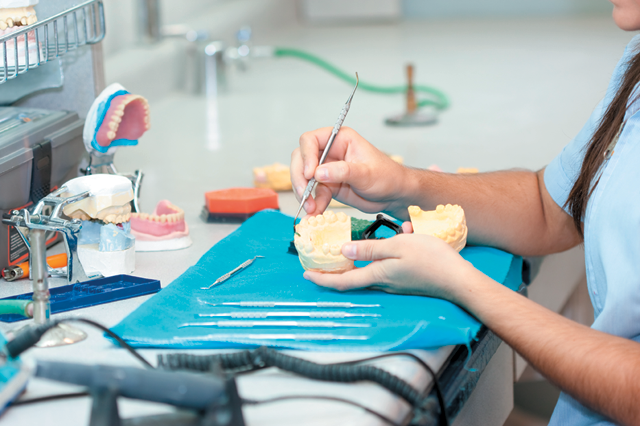
Improved artistry
Labs and doctors have distinct jobs, but that doesn’t mean they can’t learn form each other. Quite the contrary, Keating says. It is the feedback from his doctors that pushes him to improve.
“I have several doctors that are past presidents of the AACD,” Keating says. “I have several that have been key to us. At the beginning of our careers here, they used to bug me and demand excellence, and they were really nitpicky. But I think going the extra yard with these doctors, they made us a better lab by pushing us. It’s like with you and your children: Sometimes it’s not the most important thing to be their friend, but to help them learn things and how to prepare for day-to-day life. And it’s the same thing with these dentists. They pushed the boundaries with us. They’re really nitpicky sticklers for attention to detail, but with us it has helped us.”


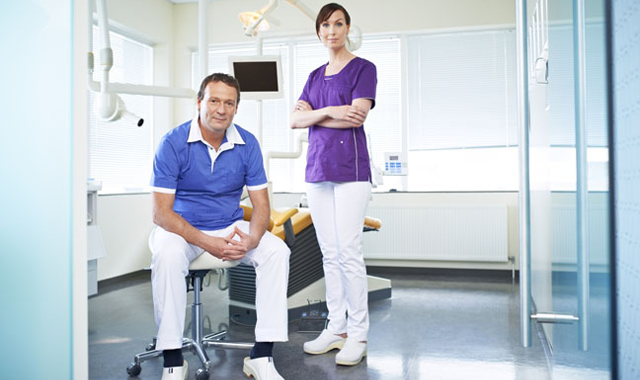
Don’t take them for granted
Key to expressing one’s thankfulness, says Keating, is not taking them for granted.
“It’s so important to take care of your accounts, to treat them like a relative,” Keating says. “Doctors have a lot of options out there, they have a lot of places they can go to. A lab really needs to get to know a doctor’s office and their staff, and they know our staff. We’re in the trenches day-in and day-out, working for the patients, and a lot of the doctors out there really appreciate it when they do get a good relationship with the dental lab. And I think it’s so important to never take for granted.”


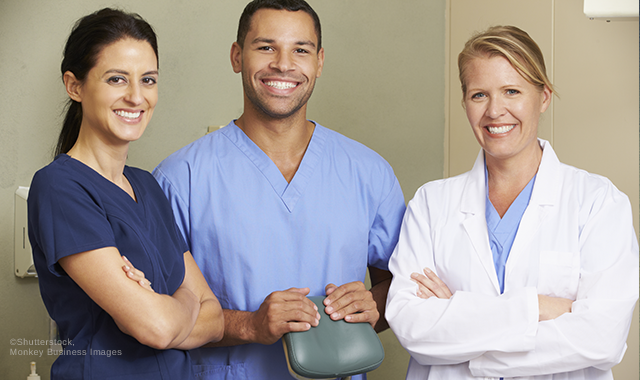
Golden rule
Taking care of your clients and letting them know that you are thankful is what will keep them coming back.
“Count your blessings,” Keating says. “There’s another guy going to be out there tomorrow trying to do the same thing and trying to get ahead. It’s a tough world out there and you can’t just take things for granted. Your existing accounts – some that are not as you’d like them to be – treat them with respect and try to do everything you can to get them a great restoration, on time, and at a great value. If you do that, you’ll have a lot of your doctors stay with you.”


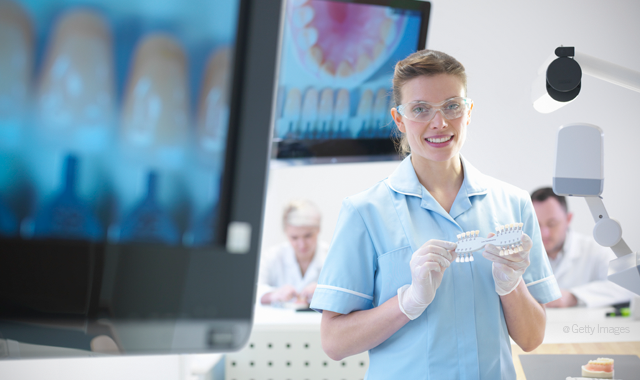
Technological investment
Technology is changing the face or dentistry and labs seem to be most willing to make the investment. When doctors are willing to make the leap, it improves the workflow.
“I’m thankful that clinicians are investing in technology,” Ferguson says. “Knowing the accuracy that we can get from technology and the way we can use it as a communication tool, dentists are more and more willing to make that investment, where it seems like just a few years ago they didn’t want to invest in equipment. They were just looking at the return on investment as opposed to what technology can do for their practice.”


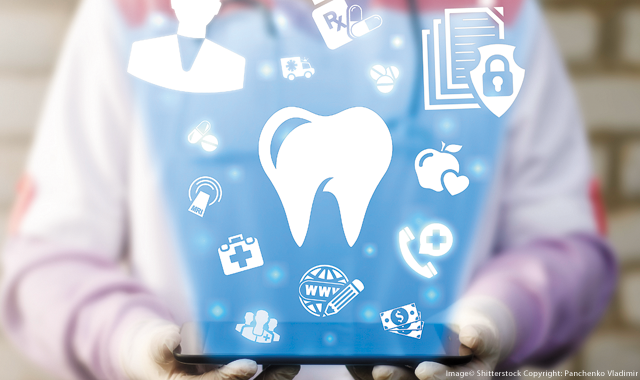
Technological enhancements
When doctors decide to embrace digital dentistry, it improves the workflow for everyone, especially the lab.
“It is all going to digital,” Keating says. “At the beginning, we knew we had to change with the times. The biggest thing I see with the dentists now are the impression scanners that are coming out. The accuracy, the communication – it’s just amazing. It saves me on one-way shipping, and it saves me not having to do plaster. Once we get things synched and dialed in on occlusion and function and everything else is on the same page, it’s amazing.”


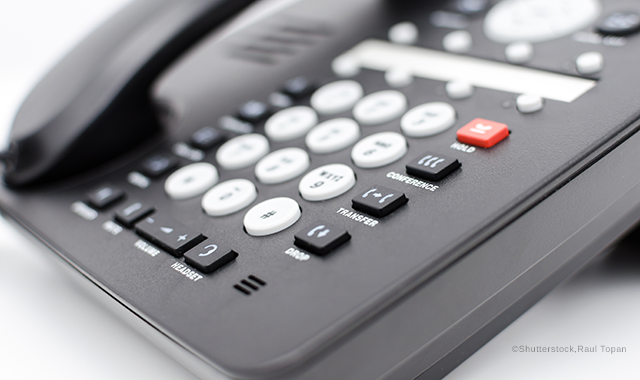
Keeping in touch
Keating is thankful for the relationships he continues to keep close. And making the effort to reach out, he says, is critical.
“There are plenty of doctors out there, and they can go anytime to another lab,” Keating says. “That’s why you better be on your A game with your doctors. Be appreciative, be on top of the game with them, and don’t take them for granted. Don’t talk to them every two years and expect them to be sending everything to you. Talk to them every two weeks. Have one of your people checking with them to see how things are going.”



The industry
As the dental lab industry changes – either for the better or for the worse – Keating says that he is grateful for the doctors who appreciate quality.
“I’m thankful for the dentists that are out there who want good dentistry and are smart enough to know that there are a lot of labs out there that are just middlemen,” Keating says. “They’re just outsourcing stuff. They don’t have the certified dental technicians that are really giving top-notch dentistry. But I think the dentists out there in this day and age, the new ones out there that have graduated in the last five or 10 years, they’re really aware and knowing there’s a lot of stuff that’s going out of the country, that’s on regulated.”



Professionalism
The competitive landscape is changing, and Keating appreciates the doctors who recognize that.
“There are going to be new guys out tomorrow,” Keating says. “Hotshots, new people in different states, new guys coming into the lab industry that are in it for the long-term. They are in it to do proper dental technology, and I think that’s a good thing. Everything is going to be on the up and up for the future.”
